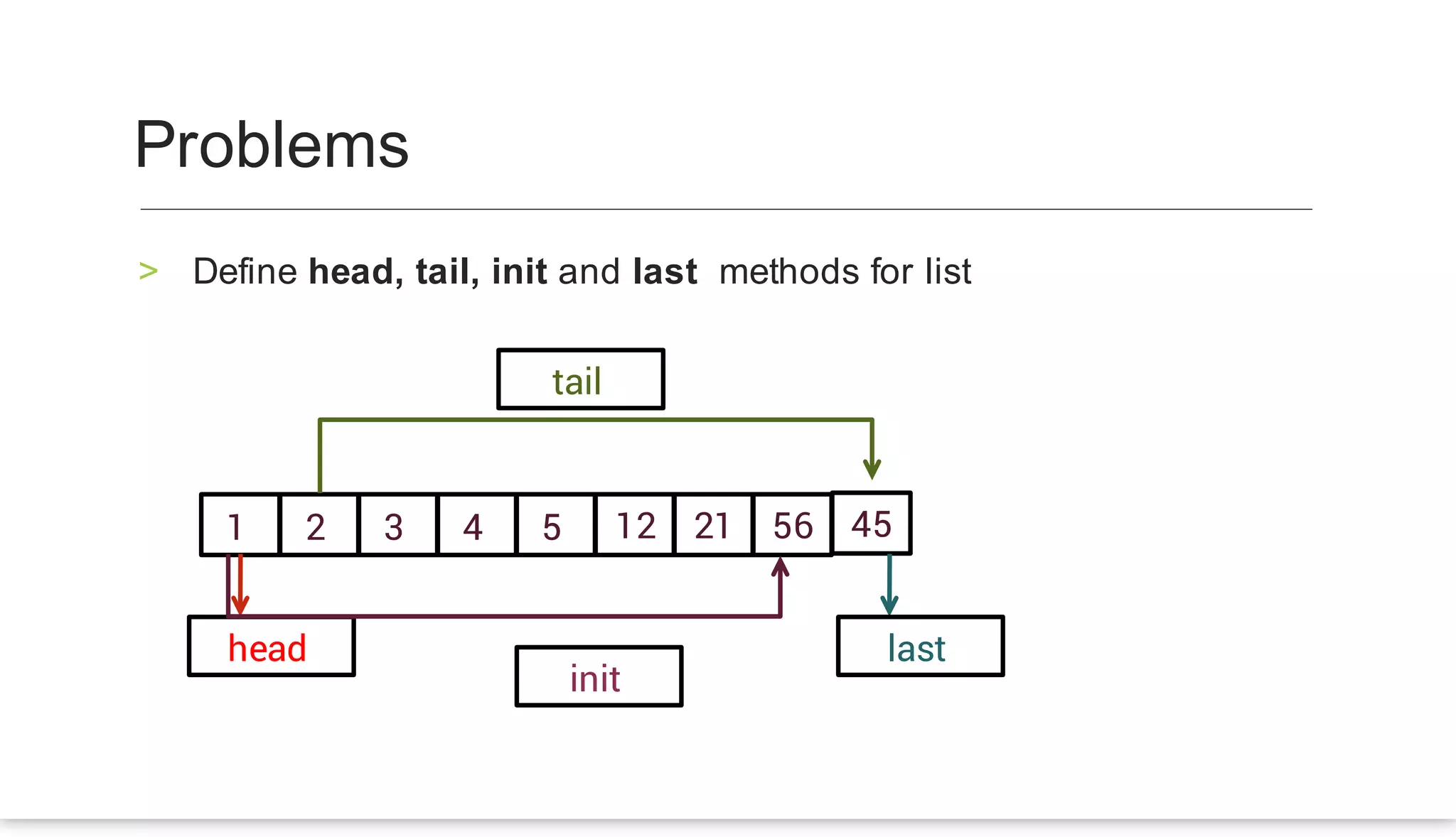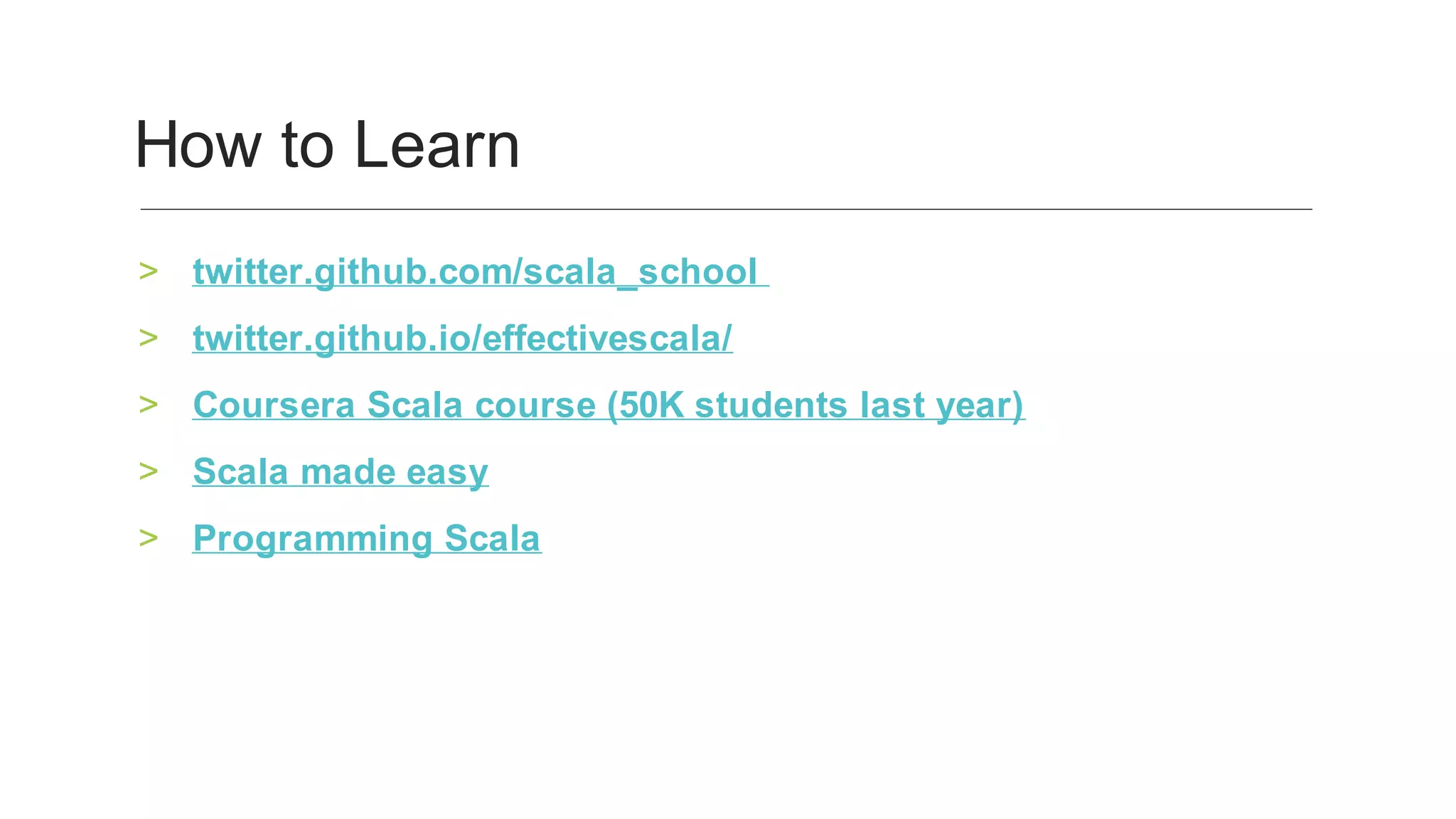The document discusses functional programming, emphasizing its immutability and the advantages it offers for parallel and cloud computing. It contrasts functional programming with object-oriented programming and highlights the importance of higher order functions and pattern matching in writing elegant, efficient code. Various programming languages such as Scala, Haskell, and Java are mentioned, along with examples demonstrating immutable and mutable data handling.


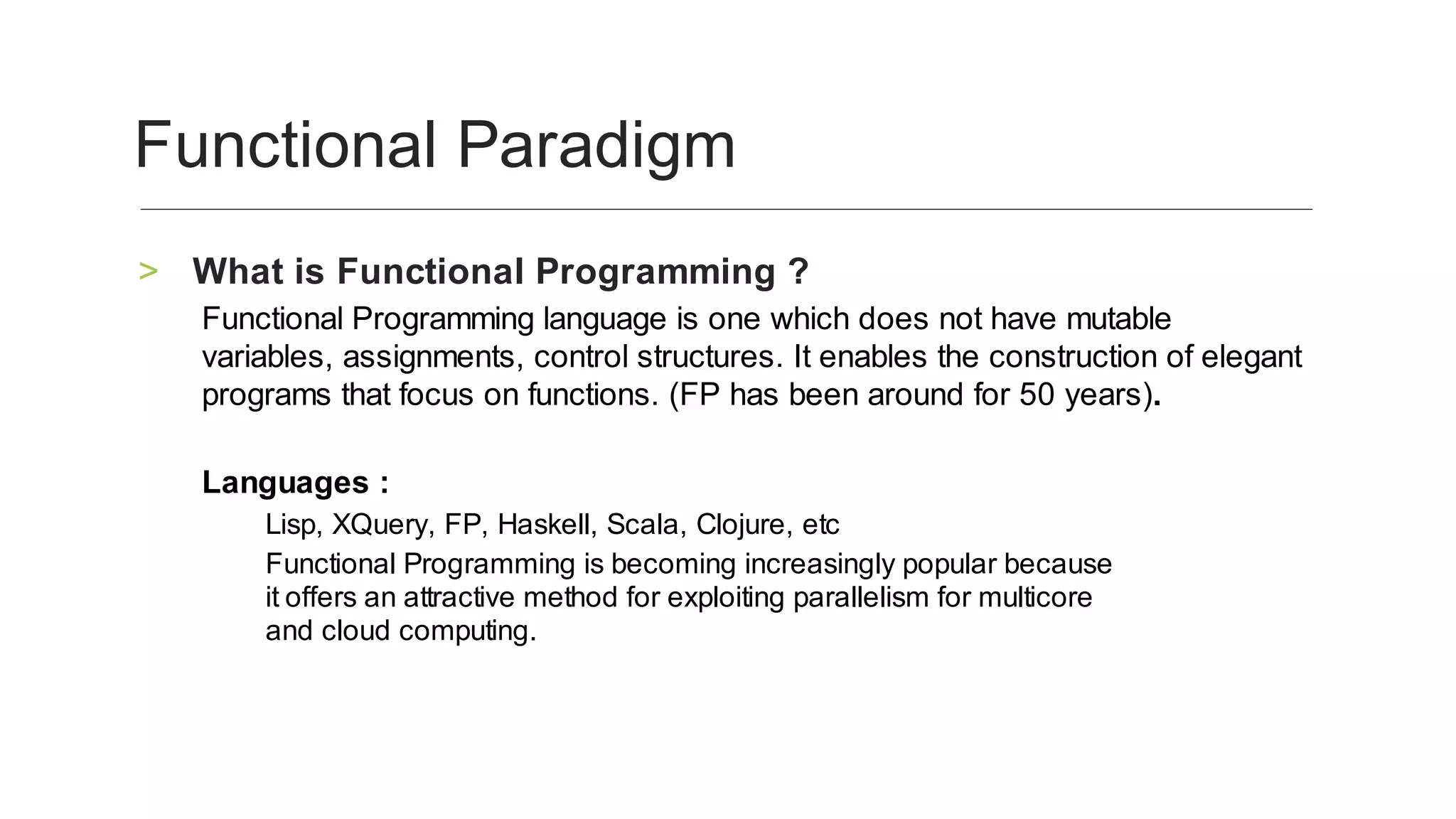

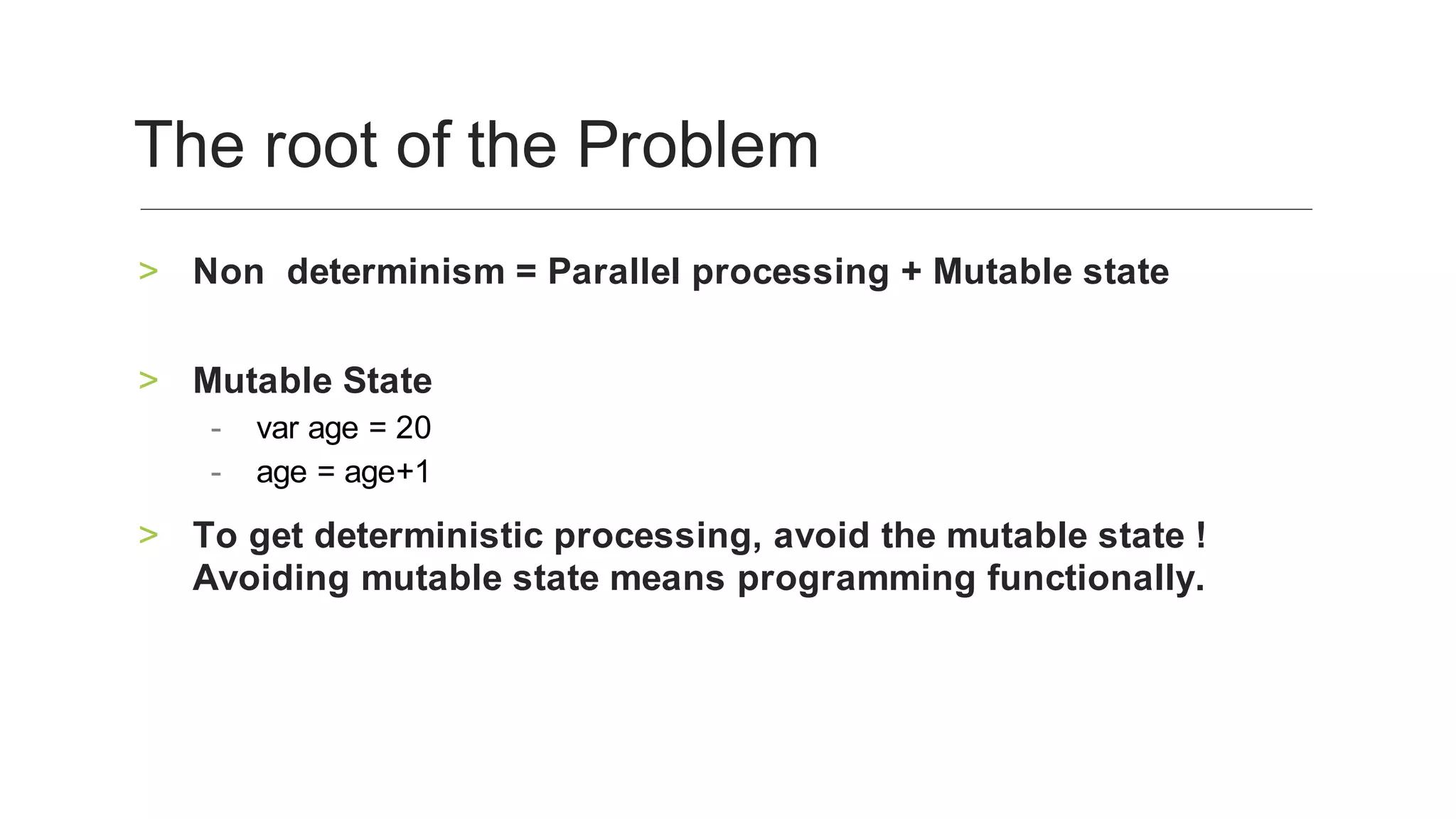
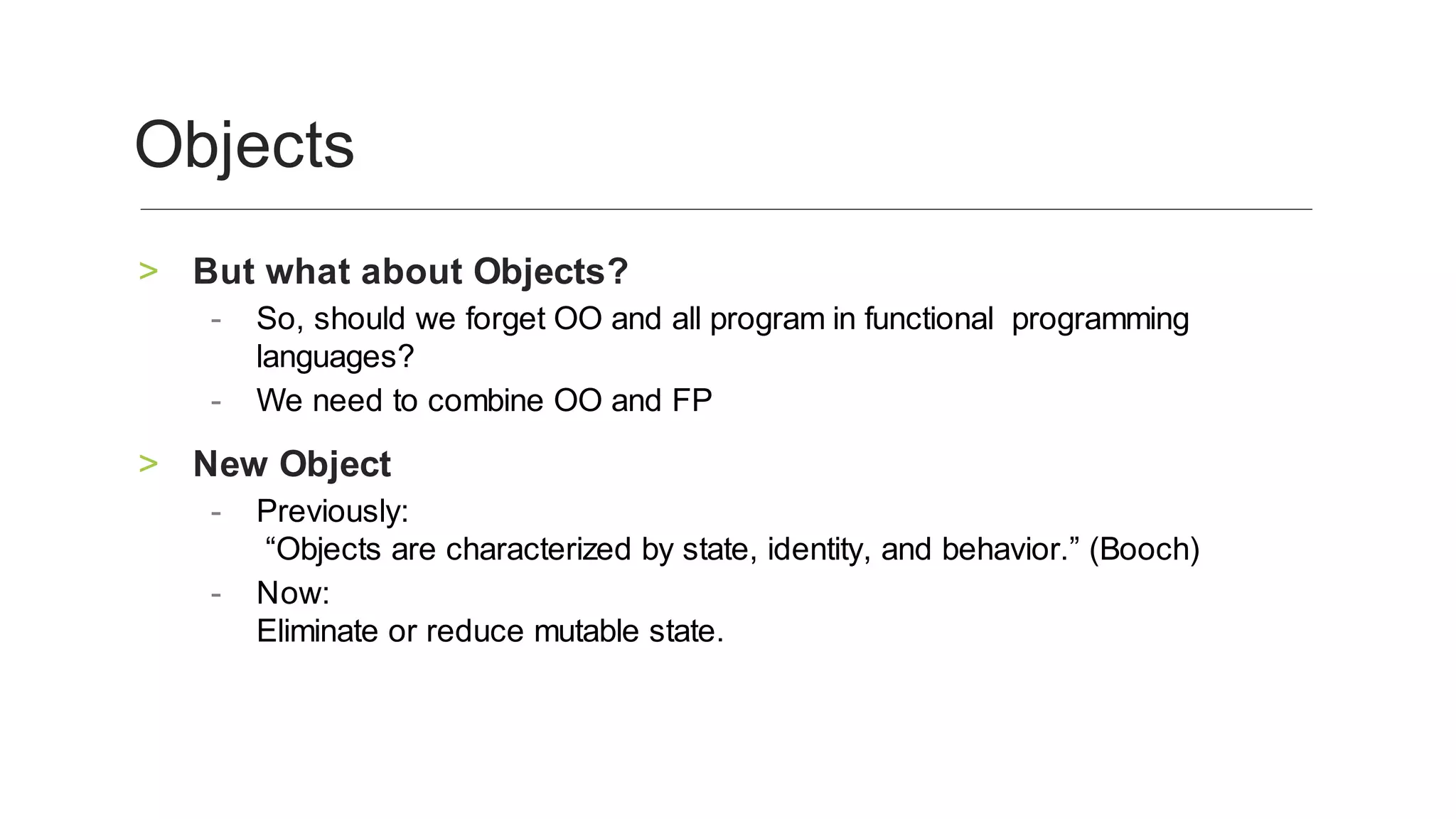
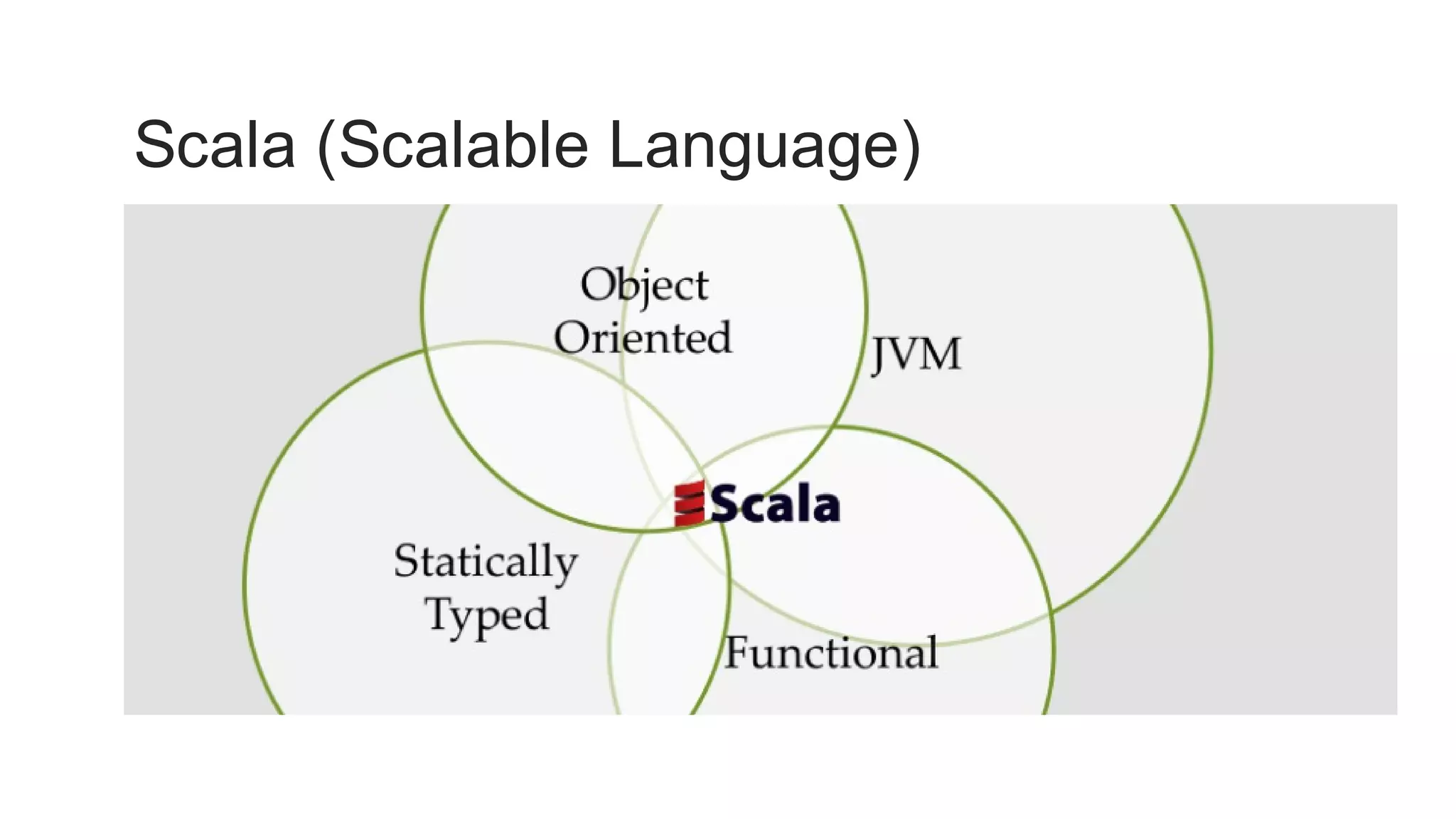
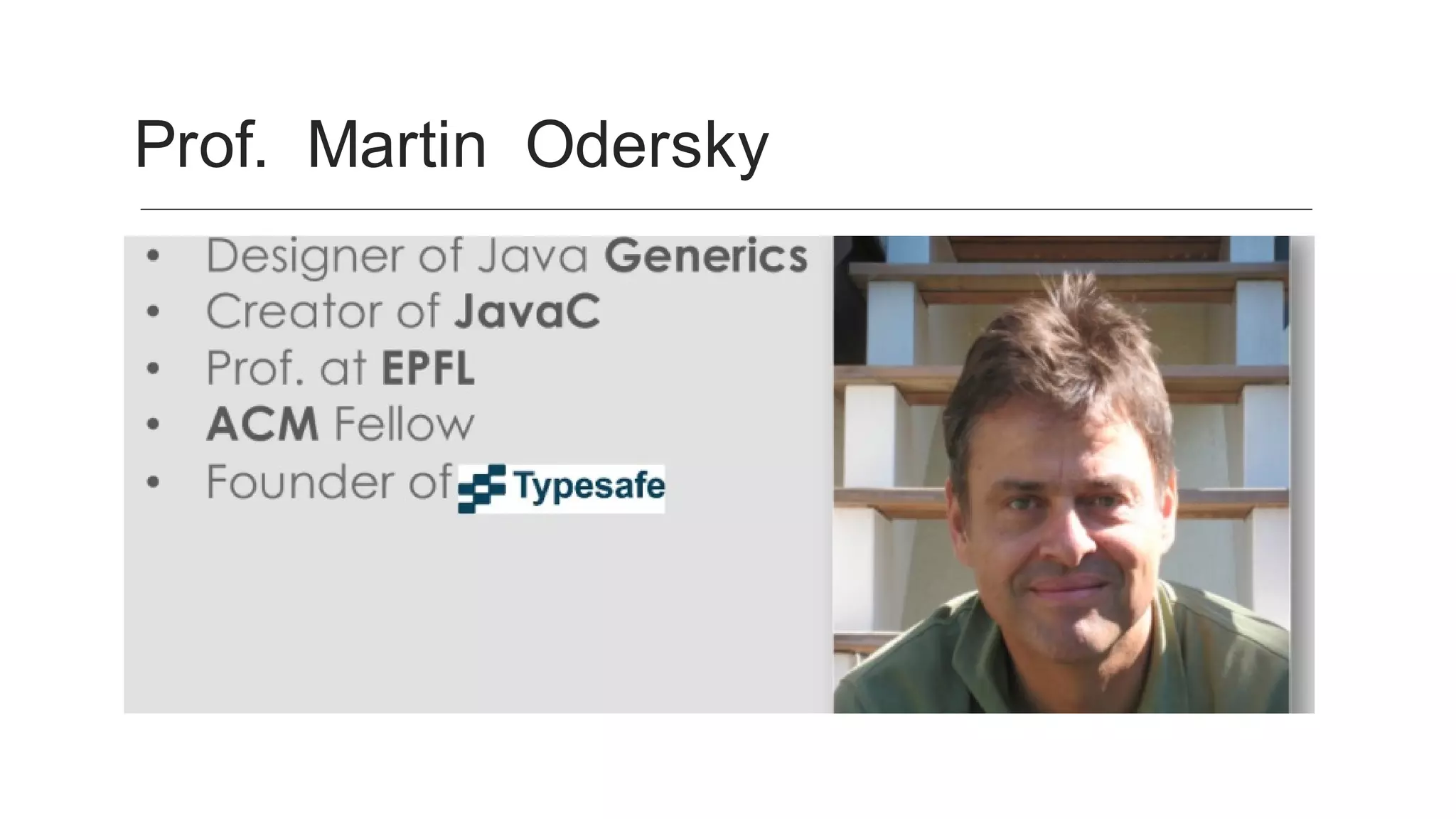
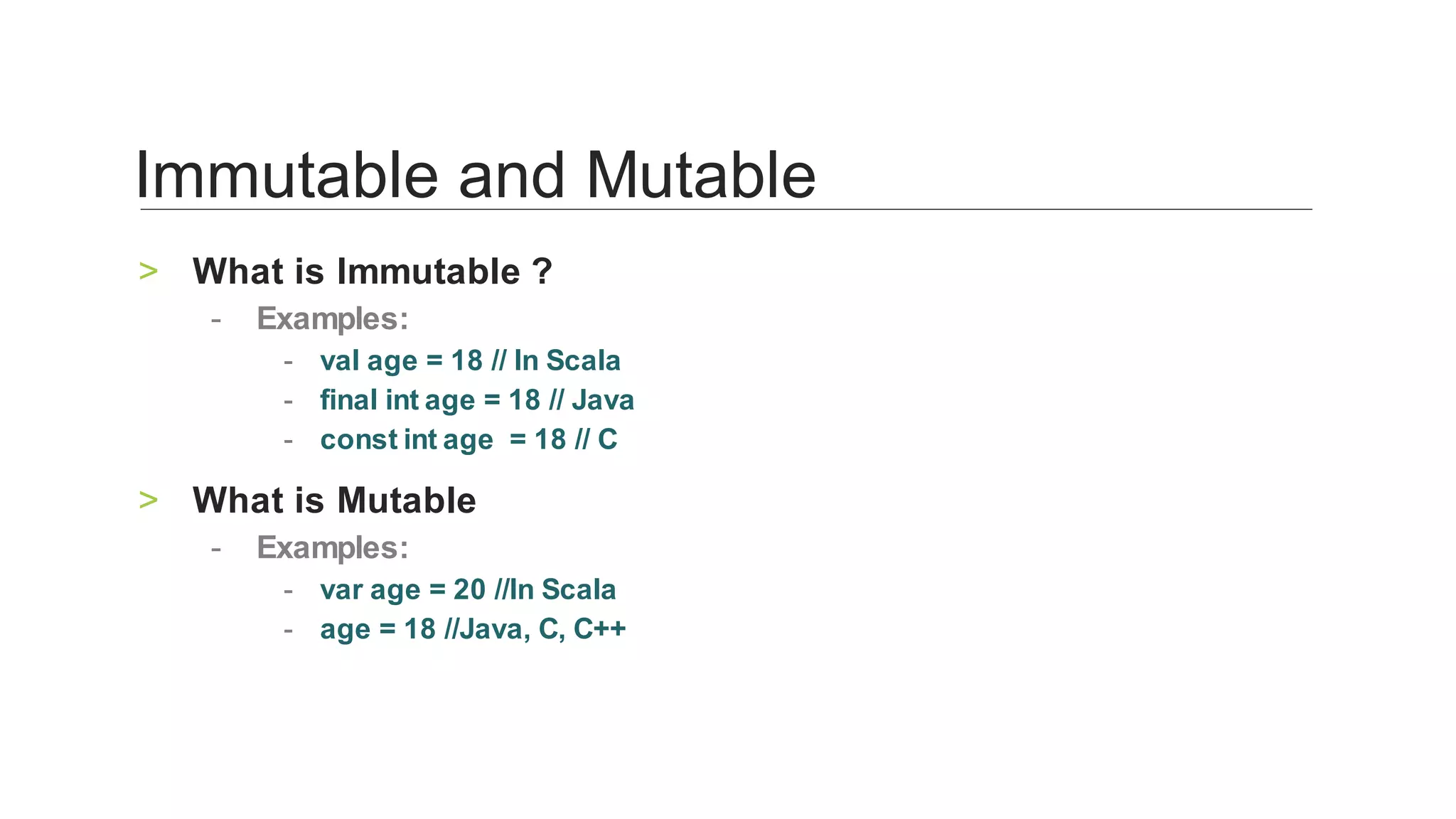
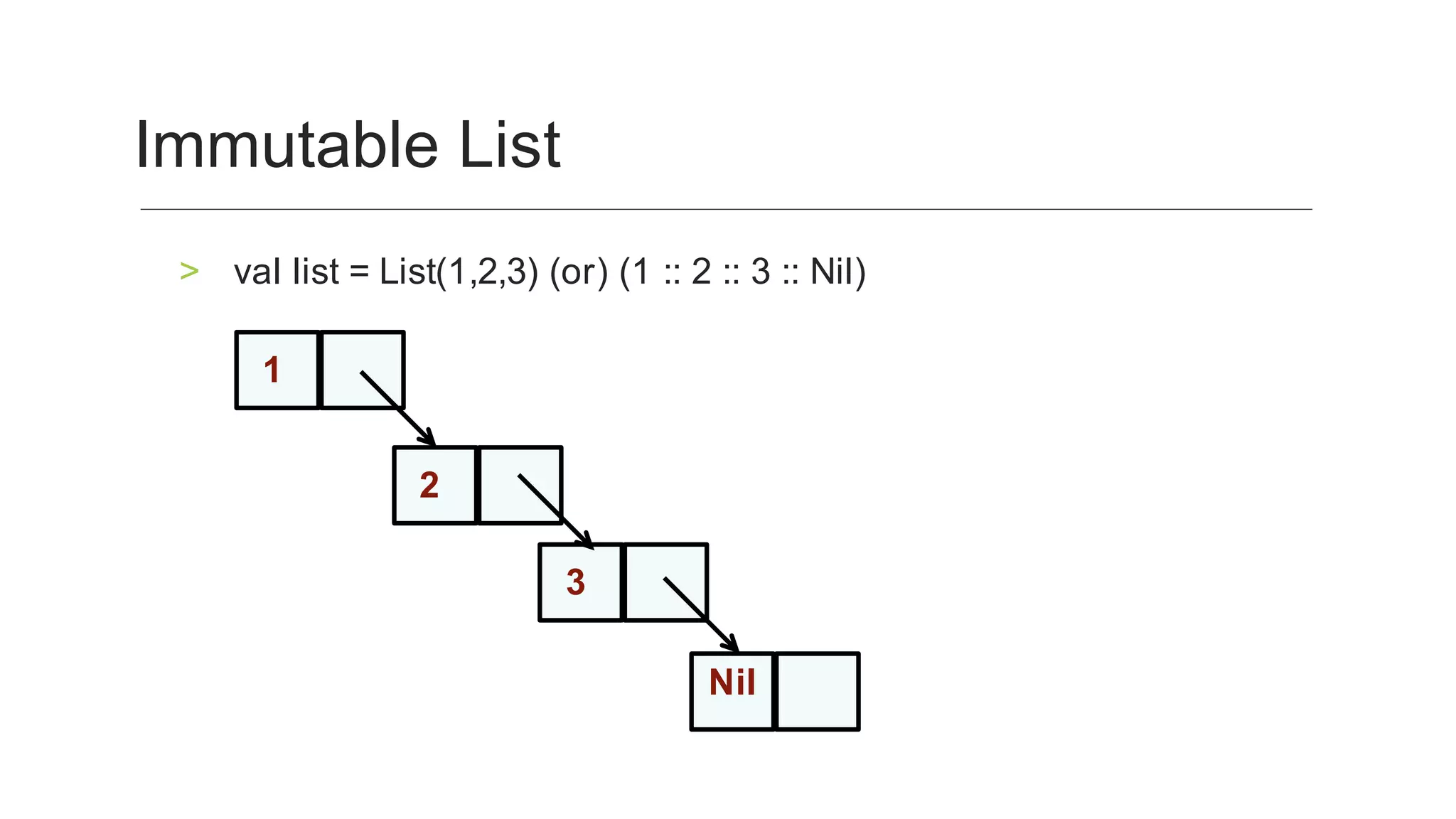
![To Double the values in the list . i.e. for a list (1, 2, 3, 4, 5) the result should be (2, 4,
6, 8, 10).
>
Let's do in Java -
int[ ] numbers = new int[ ] {1,2,3,4,5};
List<Integer> doubled = new ArrayList<>();
for(int elem : numbers) {
doubled.add(elem * 2);
}
System.out.println(doubled);
Immutable and Mutable
Primitive
Obsession](https://image.slidesharecdn.com/functionalprogrammingscalamod-130926041812-phpapp01/75/Functional-programming-scala_mod-11-2048.jpg)
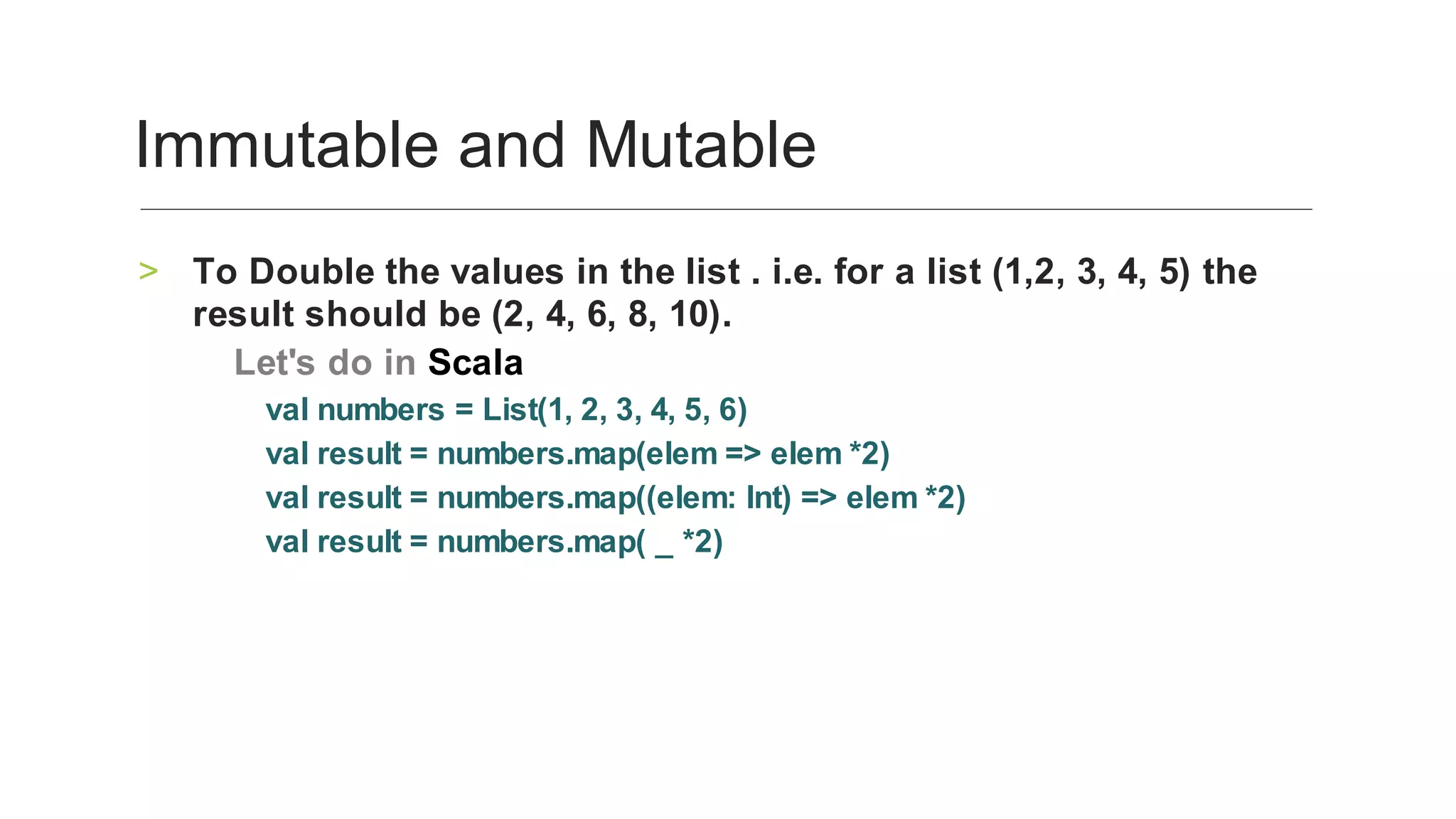
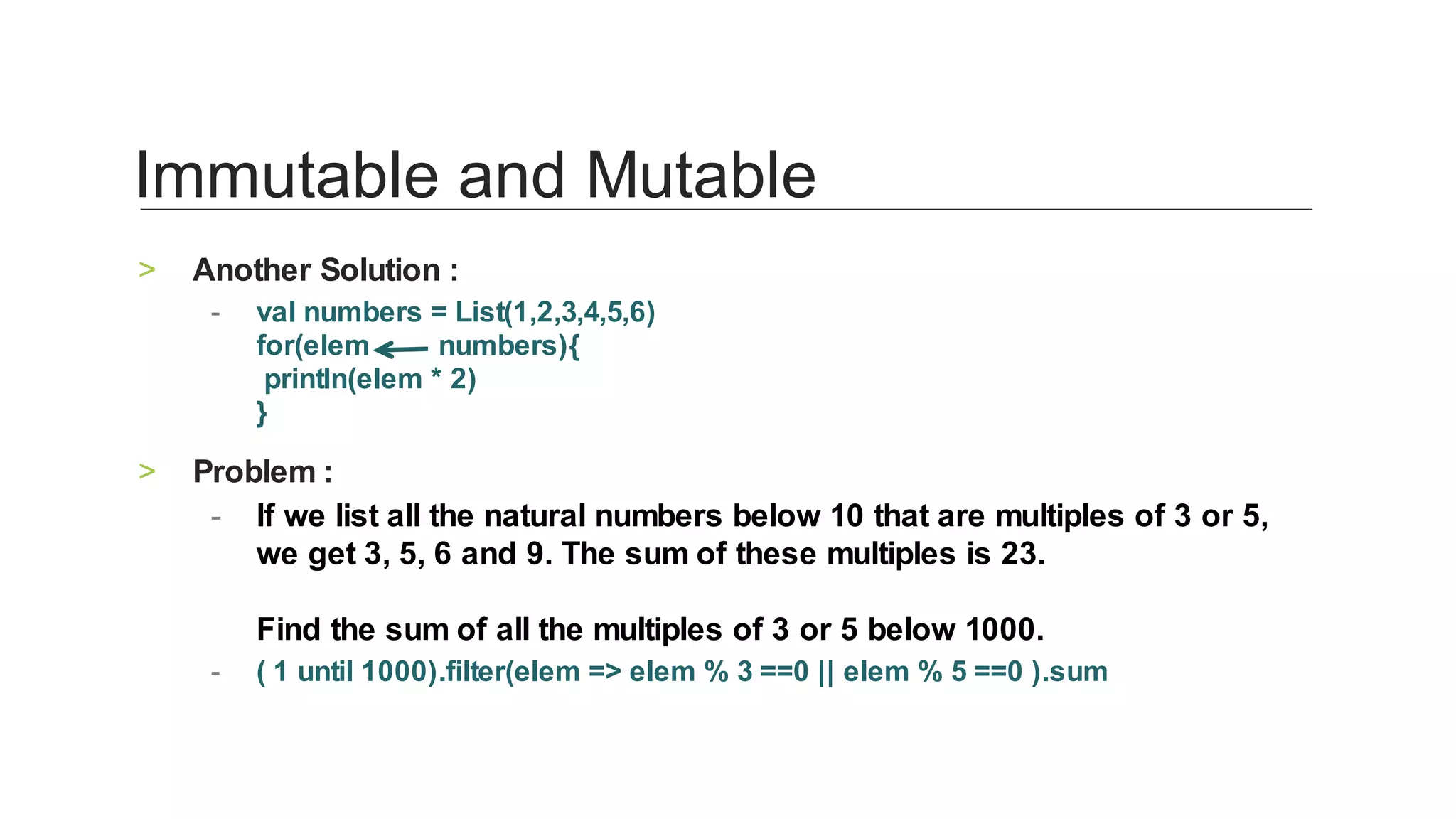
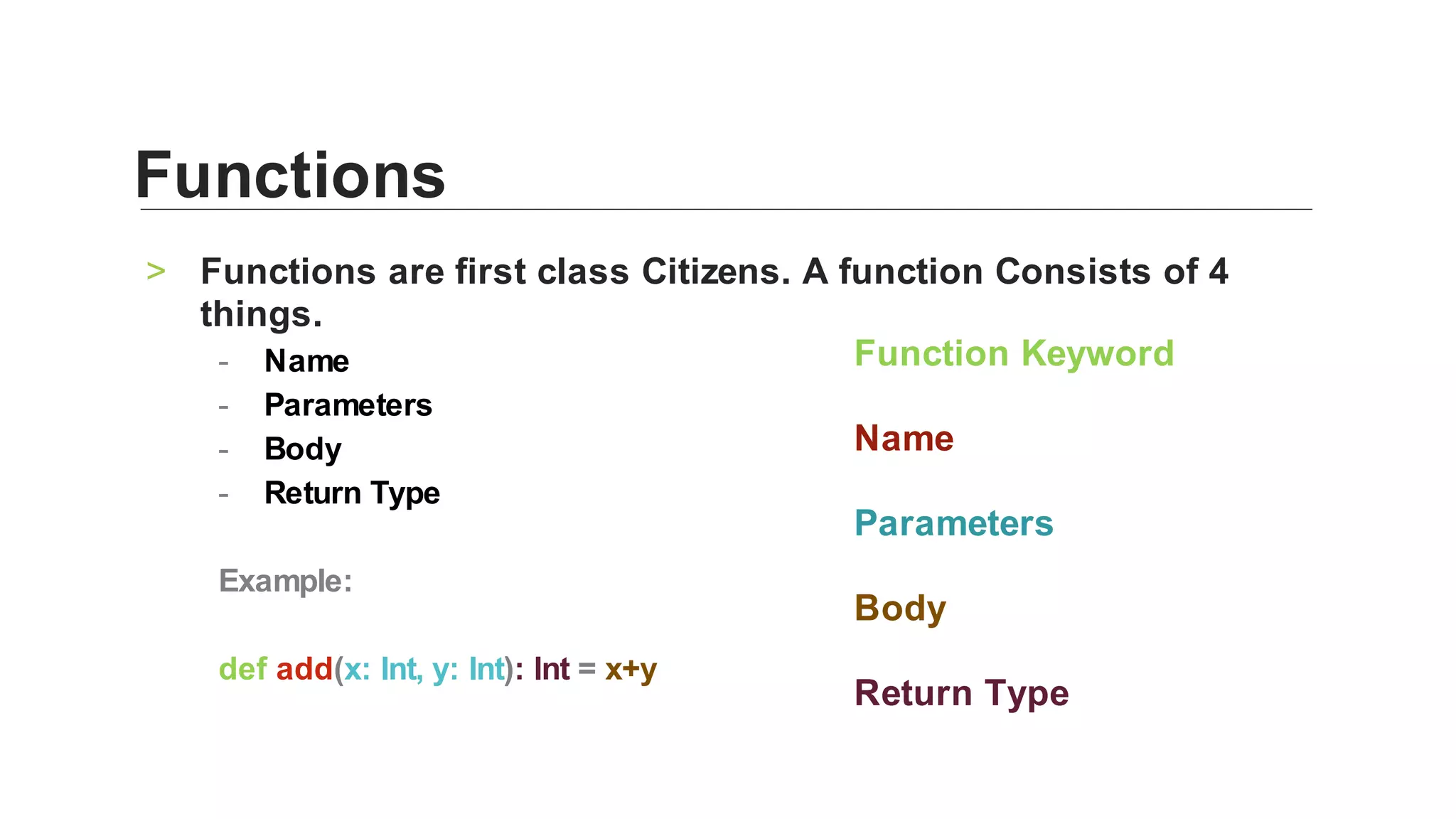
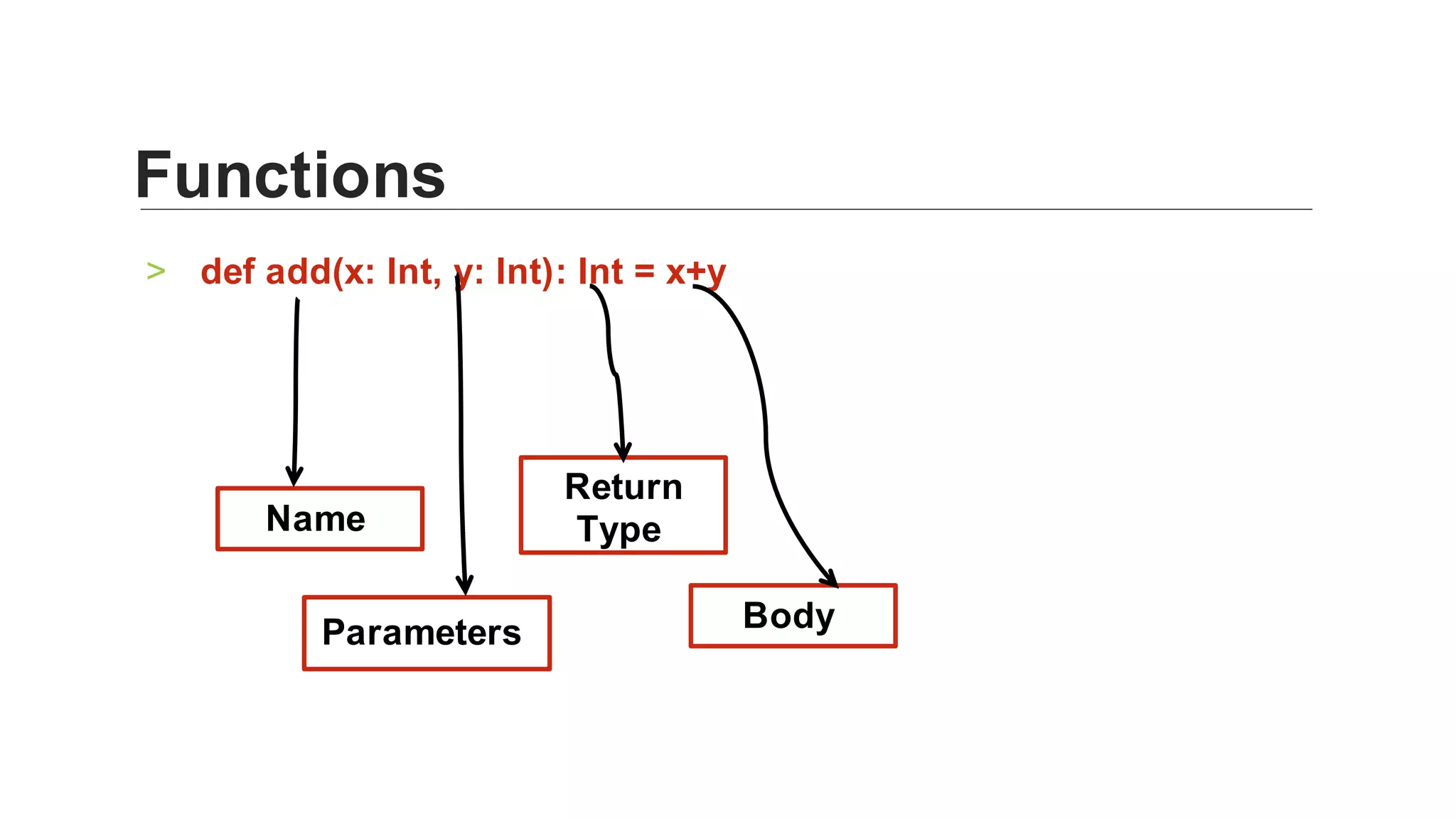
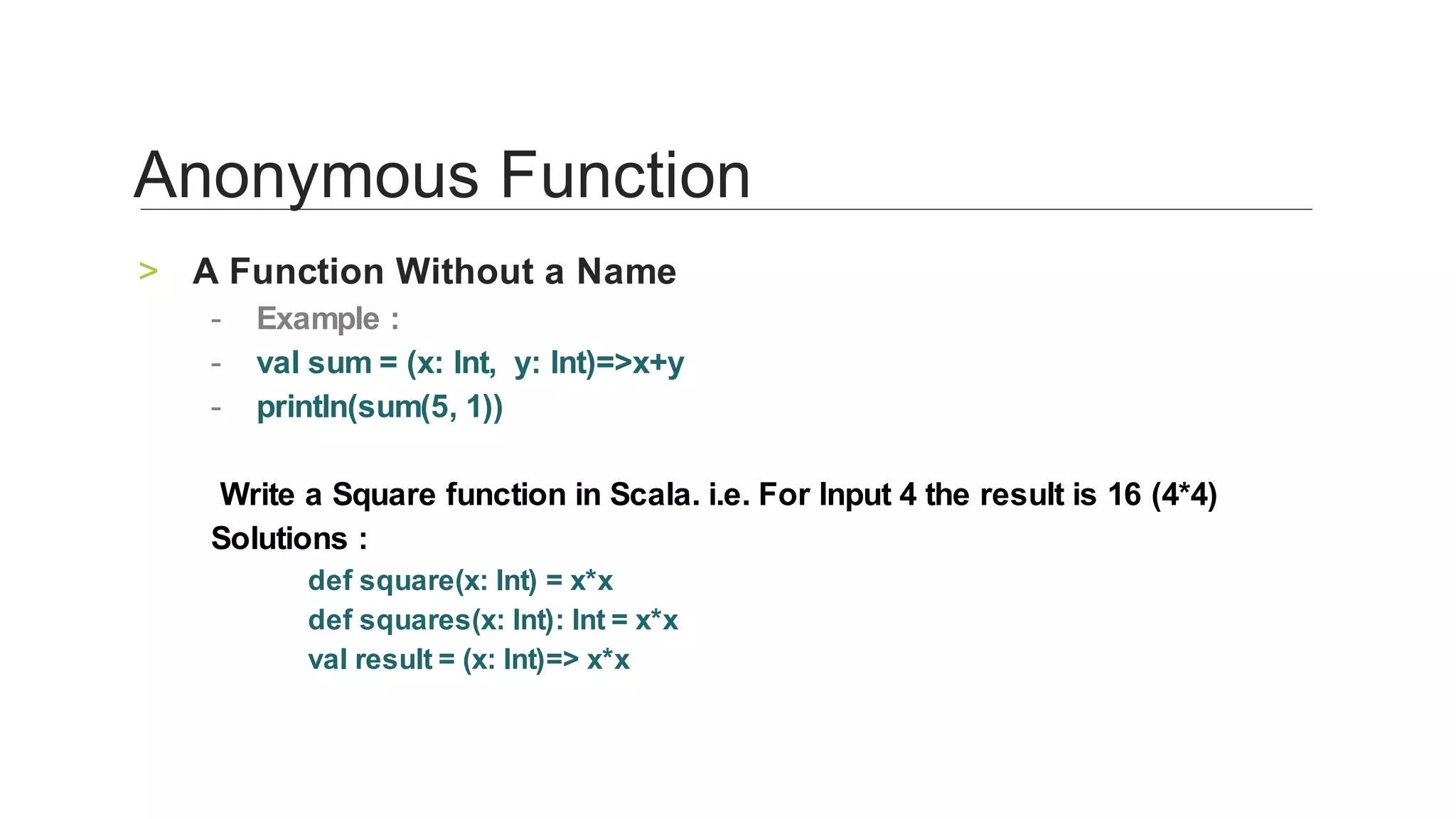
![Funtions that takes other functions has parameters or returning a function
is called Higher Order Function.
>
Example : >
val priceList = List(5, 10, 15, 17, 20, 25, 28, 30, 35, 40)
Goal : To sum all the prices
def sumPrices(priceList: List[Int]): Int = {
var sum = 0
for(price priceList) { sum +=price }
sum
}
Higher Order Functions](https://image.slidesharecdn.com/functionalprogrammingscalamod-130926041812-phpapp01/75/Functional-programming-scala_mod-17-2048.jpg)
![Goal : To sum all the prices Under 25 >
def sumPricesUnder25(prices: List[Int]): Int = {
var sum = 0
for(price prices) {
if(price<25) sum+=price
}
sum
}
Goal : To sum all the prices Over 25, Under 30, etc >
How will You Solve this Problem ?
Key : We need generic function i.e. Single function to compute sum of all
prices Over 25, Under 30, etc
Higher Order Functions](https://image.slidesharecdn.com/functionalprogrammingscalamod-130926041812-phpapp01/75/Functional-programming-scala_mod-18-2048.jpg)
![Solution : >
def sumPrices(prices: List[Int], cond: Int => Boolean): Int = {
var sum = 0
for(price prices) {
if(cond(price)) sum+=price
}
sum
}
Alterantive Solution: >
def sumPrices(prices: List[Int], cond: Int => Boolean): Int =
prices.filter(cond).sum
Higher Order Functions](https://image.slidesharecdn.com/functionalprogrammingscalamod-130926041812-phpapp01/75/Functional-programming-scala_mod-19-2048.jpg)
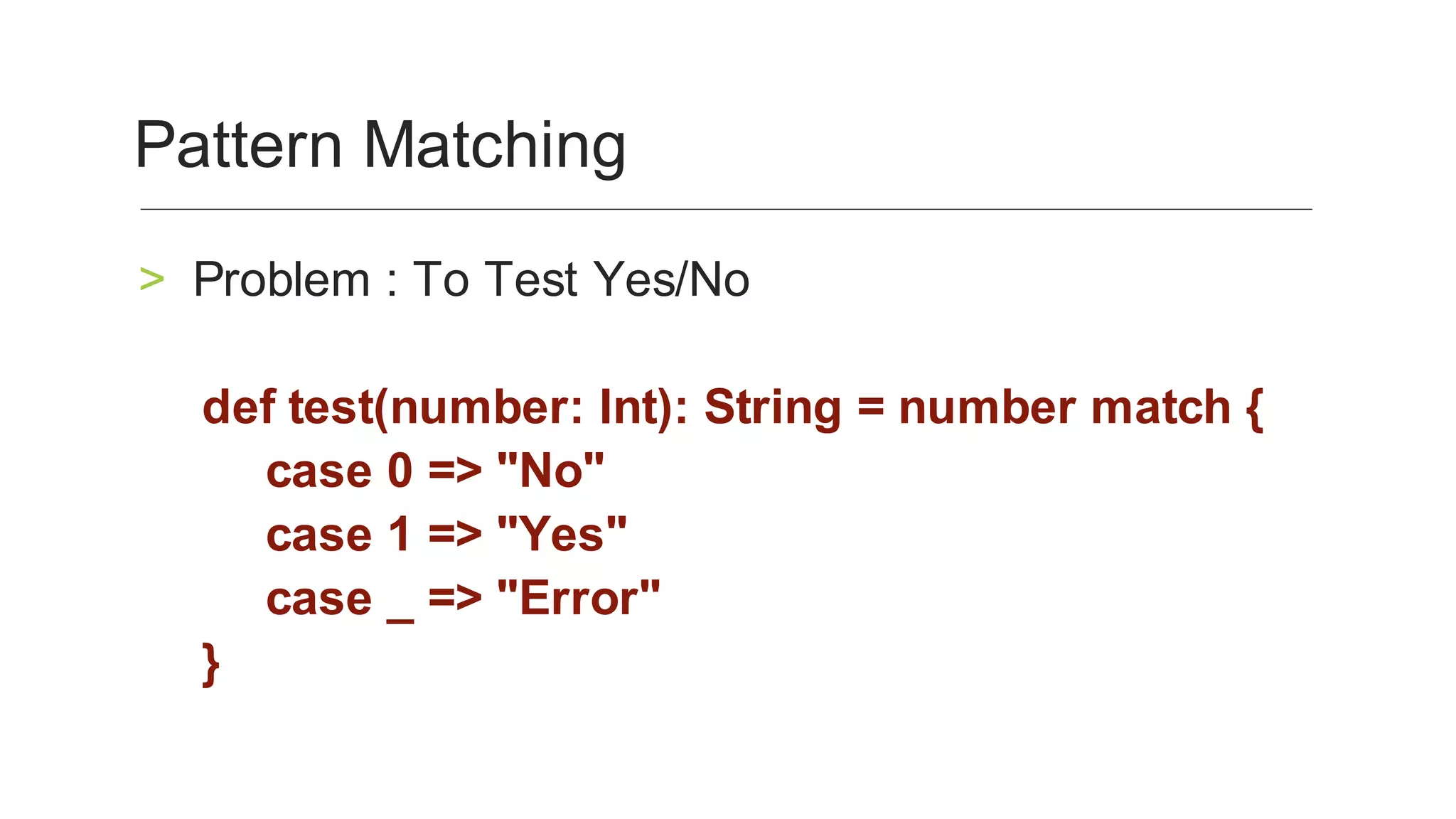
![To sum all the values in the list. i.e List(1, 2, 3, 4, 5) => 15 >
def sum(list: List[Int]): Int = list match {
case Nil => 0
case x :: xs => x + sum(xs)
}
Pattern Matching
1 2 3 4 5 Nil
x xs](https://image.slidesharecdn.com/functionalprogrammingscalamod-130926041812-phpapp01/75/Functional-programming-scala_mod-21-2048.jpg)
![To Print Hello World N times >
def ntimes(n: Int) = for(i n) println("Hello World")
Sum of Odd elements in a List >
def oddSum(list: List[Int]): Int = list.filter(elem => elem%2!=0).sum
Problems](https://image.slidesharecdn.com/functionalprogrammingscalamod-130926041812-phpapp01/75/Functional-programming-scala_mod-22-2048.jpg)
![Find length of the list without using length function >
def length(list: List[Int]): Int = list.map(elem => 1).sum
def length(list: List[Int]): Int = list match {
case Nil => 0
case x :: xs => 1 + length(xs)
}
Problems](https://image.slidesharecdn.com/functionalprogrammingscalamod-130926041812-phpapp01/75/Functional-programming-scala_mod-23-2048.jpg)
